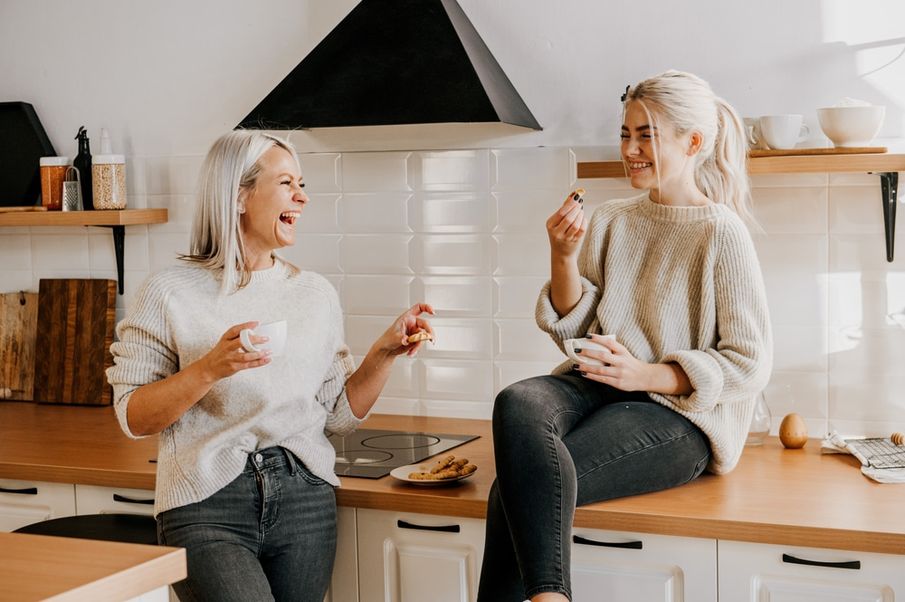Summertime can bring body worries to the forefront, but there are steps you can take to support the young people in your life
The summer can be a busy time for Childline, the counselling service for children and young people, run by the NSPCC. According to new data, the charity shared that 40% of all the counselling sessions that they delivered last year on eating disorders and body image took place between June and September.
As adults, many of us will be acutely aware of the increase in interest around our bodies in the summer months. We’re targeted with diet and exercise plans that promise to get us that ‘summer body’. We may feel pressure to be ‘beach body ready’, to compete with swimwear shots we see on social media feeds and on TV. As the weather heats up, our bodies may be more on display – opening us up to seasonal worries about how we may look in certain clothing.
But, as Childline has seen, these worries aren’t just reserved for adults. “Summer is my least favourite time of year, it brings up all my negative thoughts about my body. Everyone’s talking about getting 'summer ready', how can I not think about it all the time?” Said one 16-year-old girl, who reached out to Childline.
“Every year our trained counsellors speak to hundreds of children in the run up to and during the summer holidays who are struggling with their body image or eating disorders," says Kieran Lyons, service head of Childline. "Summer can be a really tough time for anyone who is already dealing with these issues, and it also can be a time which can make others who ordinarily felt happy with their body image begin to feel negatively.”
So, how might adults best support young people struggling with these issues this summer?
1. Be aware of common themes
Childline highlights six common themes that came out of its counselling sessions on body image and eating disorders. Being aware of these may help you to spot the early warning signs that something is not right. They are:
- Comparisons to friends, siblings, and people on social media.
- Guilt around eating particular “bad” foods or guilt about eating at all.
- Negative comments from family, friends, bullies, and partners about their weight and body often contribute to body image concerns.
- Weight worries linked to lockdown, gaining weight due to lockdown inactivity or stress.
- Not knowing how to manage weight or fitness without going to extremes.
- Cancelling plans due to body image issues.
2. Talk to them about their qualities
In a world that is so focused on what it sees in front of it, it can be easy to fall into a trap of just focusing on how we look on the outside. Childline recommends talking to young people about how the way they look is just one single part of the whole person that they are. Talk to them about their personality, their achievements, and the ways that they behave – all these components that come together to make a full person. Celebrate who this person is, and let them know how much you value them.
3. Start a conversation about edited and airbrushes images
We’re all bombarded with edited and airbrushed photos on a daily basis, to the point where it can be difficult to see what is real and what is not. Young people may see these kinds of images on social media, in magazines, on TV, and in advertisements.
Talk to them about the spread of these types of images and the roles that they play in our lives, and walk them through some signs to help them spot it in action (for example, no texture to the skin, exaggerated body proportions, intense colours, and preset filters). You may also want to introduce them to people and movements that celebrate authenticity.
4. Help to build their confidence
Childline recommends helping to build young people’s confidence, by encouraging them to spend their time doing a hobby that they may enjoy.
Hobbies are all about finding joy in things without being results driven. We do them simply for the pleasure of it, and that can be a really valuable thing to have in your life if you’re struggling with other aspects of your wellbeing. It could be reading (or listening to audiobooks or podcasts), crafting, creative writing, gaming, cooking, drawing, or listening to or playing music.
Not only are hobbies a great, productive escape when we’re going through a hard time, but they teach us to find joy in activities simply because we all deserve to feel it.
All children can speak to a trained counsellor over the phone on 0800 1111, via email, or on a 121 chat on the Childline website.


Comments